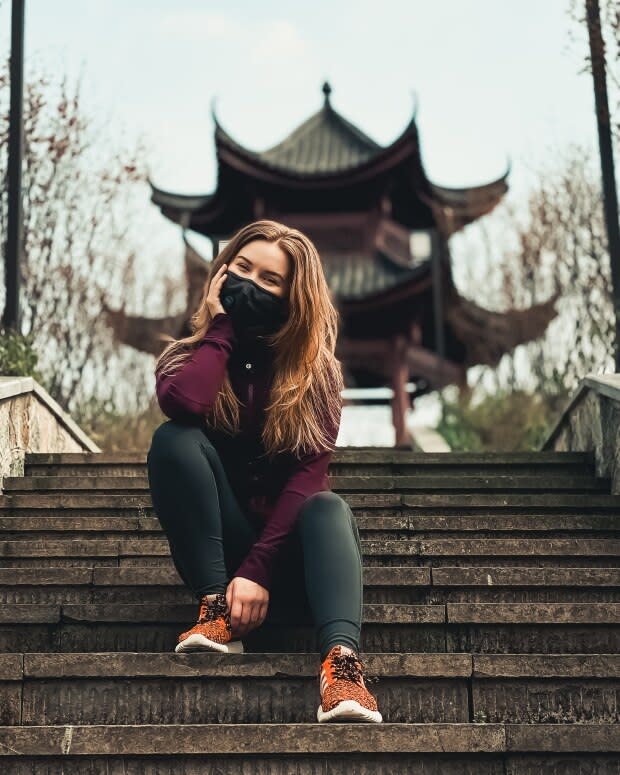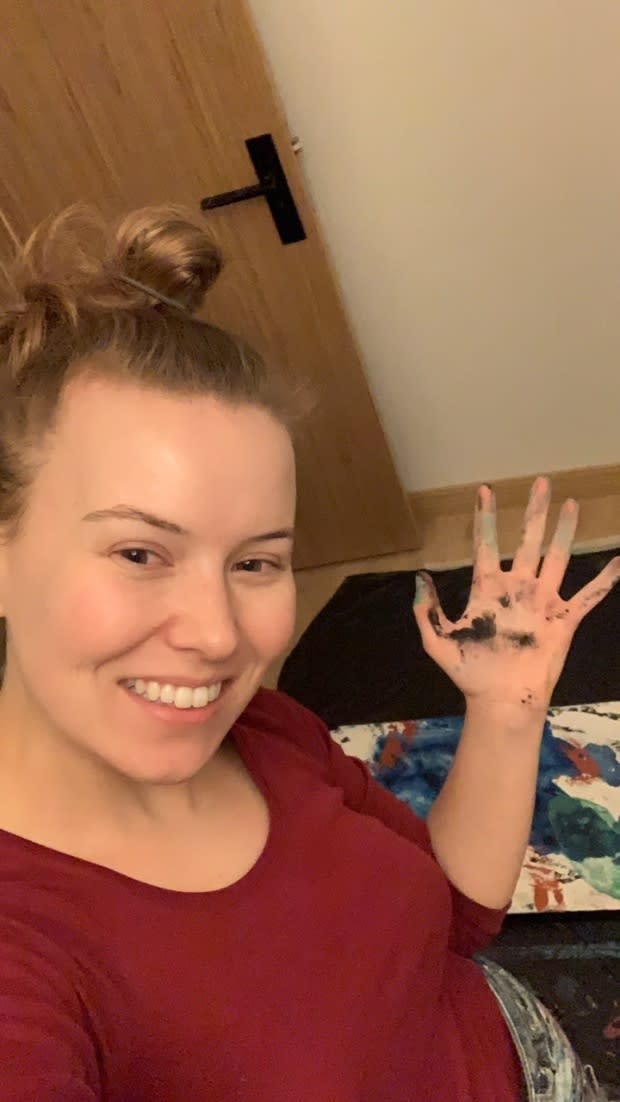Lessons from quarantine: Saint Johner in China says 'there's light at the end of tunnel'
For six weeks, Samantha Dean didn't set foot outside.
She was quarantined alongside her partner in Chongqing, China, a municipality bordering the Hubei province, where the novel coronavirus first started infecting people.
Dean, who was born in New Brunswick, was in her third year living and working in China when strict government measures meant only one person per household could leave, and only to get groceries.
People in masks checked temperatures at shop and apartment building entrances. For two months, Dean said, life was pretty tough.
But the Saint John native said she's seeing the "light at the end of the tunnel" this week. Her favourite restaurant reopened for takeout, and she took her first leisurely walk outside just a few days ago.

As COVID-19 case numbers drop in China, they're rising in many other countries around the world, including Canada. New Brunswick has 17 presumptive and confirmed cases, and the nationwide death toll has reached 13.
Dean made a video to share lessons from quarantine with people back home. In her experience, it got worse, then it got better.
"People are functioning on, like, two extremes," she said in an interview by Skype. "Either they're over–panicking and hoarding supplies or they're not panicking at all and they think it's no big deal."
"You need to find a happy middle."
Panicked questions
Dean said she's been getting questions from family, friends, people she hasn't seen since middle school and complete strangers. Most of them are wondering what's coming for Canada, since China had already gone through the worst of it.
So she made a YouTube video urging people to not take this virus lightly.
"I just felt I should reach out again and give some positivity that things are getting better here," she said. "But also, like, that's up to everybody to get there, right."
She said the biggest lesson she has learned is the importance of social distancing. She said China made quarantine mandatory right away, which is not something Canada would do as easily in a democracy.
That's why it's important for each person to make sure they're fulfilling their social responsibility to follow the rules, she said, such as not gathering in large numbers and not hoarding food and supplies.
"Like everybody says, you flatten the curve, you'll slow the spread. So our hospitals don't get overwhelmed. So medical workers don't end up sick."
"Be mentally prepared for the fact that it's going to get worse. You're going to see reports of, unfortunately, people passing away," she said. "But just remember that there is a light at the end of the tunnel."
Quarantine in a gated community
Dean said she lives in a gated community, where a ticket system was used. Everybody was required to stay inside, and the ticket would allow people to leave the compound on certain dates to get groceries.
"Only one person per family could leave on these certain dates to get supplies. But mostly we were encouraged to use delivery systems to order our groceries."
Dean said the first first few weeks were the toughest.
"It did cause a lot of panic attacks. I had a lot of anxiety, a lot of sleepless nights."

She and her partner had to come to an agreement, as a couple, about how seriously they were going to take the outbreak.
It was "exhausting mentally," she said. And she doesn't doubt this is what a lot of people are going through in her hometown now.
But slowly, life during a pandemic came to feel normal. She stopped obsessing over the news of new deaths every day, because that caused her a lot of anxiety.
Being prepared helped.
"Prepare for a month, maybe two weeks to a month of stuff if you can. Freeze some veggies, freeze the meat, like that's enough, but you don't need to buy six packs of toilet paper."
An emotional walk outside
She said quarantine was "totally worth it."
Dean went for a walk without using the ticket system for the first time the other day, she said.
She saw children playing and women dancing in the park.
"It's been great. A bit emotional actually."
Something she didn't think she'd miss so much, is getting a cup of coffee at a cafe. She still can't sit in a dine-in area, but she did grab one to go.
"I learned to appreciate the little things," she said.


